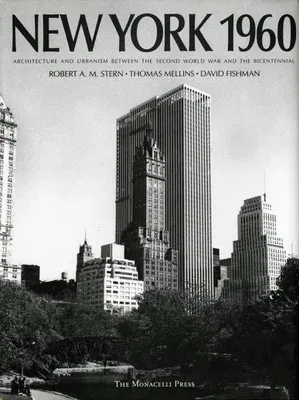The post-World War II era witnessed New York's reign as the unofficial
but undisputed economic and artistic capital of the world. By the
mid-1970s, the city had experienced a profound reversal, and both its
economy and its reputation were at a historic nadir.
This is the third volume (and the fourth chronologically) in architect
and historian Robert A. M. Stern's monumental series of documentary
studies of New York City architecture and urbanism.
New York 1880, New York 1900, and New York 1930 have comprehensively
covered the architects and urban planners who defined New York from the
end of the nineteenth century to the middle of the twentieth century.
The post-World War II era witnessed New York's reign as the unofficial
but undisputed economic and artistic capital of the world. By the
mid-1970s, the city had experienced a profound reversal, and both its
economy and its reputation were at a historic nadir. The architectural
history of the period offered an exceptionally abundant and varied mix
of building styles and types, from the faltering traditionalism of the
1940s through the heyday of International Style modernism in the 1950s
and 1960s to the incipient postmodernism of the 1970s.
Organized geographically, New York 1960 provides an encyclopedic survey
of the city's postwar architecture as well as relating a coherent story
about each of its diverse neighborhoods. Primary sources are emphasized,
including the commentaries of the preeminent architecture critics of the
day; the text is illustrated exclusively with a rich collection of
period photographs.

